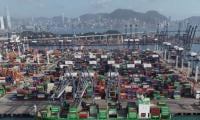Over 9m overseas Pakistanis will now vote
LAHORE: The Pakistan Tehreek-e-Insaf (PTI) government has finally allowed over nine million overseas Pakistanis, or more than four percent of the country's population residing in 115 different countries around the world, to exercise their right of franchise in future national ballot exercises. However, not much was heard on the media and the National Assembly floor if these overseas Pakistanis would be allowed to contest elections or not, writes Sabir Shah.
The Pakistani diaspora, one of the largest immigrant populations in the world, had remitted a record $29.4 billion back home during 2020-21, hence playing a leading role in boosting the country's foreign currency reserves. According to the Central Bank, the remittance inflows during FY21 were mainly sourced from Saudi Arabia ($7.7 billion), United Arab Emirates ($6.1 billion), United Kingdom ($4.1 billion) and the United States ($2.7 billion).
It is imperative to note that during November 2020, the PTI government had moved a constitutional amendment bill to allow dual nationals to contest polls. According to the bill tabled then, elected dual nationals would have to renounce their foreign citizenship before taking oath as federal or provincial legislators.
Remember, Pakistan has had at least two prime ministers in Shaukat Aziz and Moeen Qureshi, who were dual citizens. Who might benefit from votes of overseas Pakistanis?
In September 2021, Jang Group/Geo TV journalist, Zahid Gishkori, had written: “Nearly 10 million Pakistani nationals residing in 200 countries hold the National Identity Card for Overseas Pakistanis (NICOP), who could get the right to vote in the next general elections. The NICOP is a registration document for the overseas citizens of Pakistan, aged 18 or above. Six countries host over 80pc of the 9,906,175 potential overseas voters that include Saudi Arabia, United Arab Emirates, United Kingdom, Oman, Canada and the United States.”
He had revealed: “A little over 58pc of these potential overseas voters are concentrated in 20 districts that include Lahore, Rawalpindi, Gujrat, Sialkot, Gujranwala, Faisalabad, Karachi East, Karachi Central, Dera Ghazi Khan, Jhelum, Attock, Karachi South, Multan, Swabi, Peshawar, Islamabad, Sargodha, Mandi Bhauddin, Mardan and Swat. With 709,821 NICOP holders, district Lahore has the highest number of potential overseas voters in Punjab, followed by Rawalpindi with 546,507 and Sialkot with 472,795 potential voters. In Sindh, Karachi Central has the highest number of voters with 346,960 NICOP holders, followed by Karachi East and South with 221,312 and 169,321 probable voters respectively. In KP, Swat leads the way with 225,764 while 206,600 likely overseas voters belong to Islamabad.”
He had further divulged: “As many as 91 NA seats fall in these 20 districts. Pakistan Tehreek-e-Insaf (PTI) currently has 52 MNAs from these districts, Pakistan Muslim League-Nawaz (PML-N) 30 MNAs and Pakistan People's Party (PPP) one NA seat and Muttahida Qaumi Movement (MQM) has two MNAs. With overseas voters added, PTI could hope to consolidate its position in these districts and might even succeed in gaining a few seats. In the last general elections, PTI got 16,903,702 votes, PMLN 12,934,589 and PPP 6,924,356 votes, with an overall vote-share of 31%, 24% and 13% respectively. The Geo News investigation determines that if 35% to 50% of potential overseas voters exercise their right to vote and PTI manages 30% of those, the party would gain between one million to one and a half million votes. If PTI’s share in those votes go up-to 50%, it could gain 1.7 to 2.4 million votes, making it the largest beneficiary.”
He had asserted: “In 2018, PTI won 116 National Assembly seats, a seat every 145,721 votes. Hence with overseas votes, they could end up gaining between 5 to 7 NA seats that could go up to 10 seats if the turnout exceeds 50%. However, there are factors likely to affect these scenarios like the voter turnout, in constituencies where the party's potential overseas voter is concentrated and the assumption that the PTI would be the prime beneficiary of the overseas votes. If 35 to 50% overseas Pakistanis participate in voting and PML-N gets 20% of that chunk, the party could potentially gain between 6 to 10 lac votes, helping it gain 3 to 5 seats.”
The story further reads: “But in the PMLN’s case a big factor is that they may gain more votes but which doesn't always translate into more seats. In 2018, PMLN won 64 seats, getting 12,934,589, which converted to 202,102 votes per won seat. The number is higher by 60,000 votes, in comparison to PTI and 40,000 to the PPP. This trend shows that PMLN gets a high number of votes from specific constituencies, increasing its overall share but not enough to win it more seats. This is another reason why the addition of overseas voters is likely to benefit PTI more than the PMLN. The PPP is unlikely to benefit much from the overseas votes, as recent trends show it does not have much support in Punjab and overseas voters are unlikely to change that scenario.”
Some vital facts: In October 2018, the Supreme Court had disqualified two PMLN senators, Haroon Akhtar and Sadia Abbasi, for holding dual nationalities at the time of filing their nomination papers for Senate. The-then Chief Justice, Saqib Nisar, had also told the counsels for sitting Punjab Governor Chaudhry Sarwar and PMLN's Nuzhat Sadiq to furnish their clients' verified affidavits, showing that they had given up their second nationalities.
Even in 2012, many legislators found guilty of concealing their dual nationalities, were sent packing by the Apex Court.
On September 20, 2012, the Supreme Court had disqualified 12 federal and provincial lawmakers, including the-then Interior Minister Rehman Malik, for holding dual nationalities.
A peek into the archives reveals that in June 2018, the Federal Investigation Agency had provided details of 122 candidates, possessing dual nationality, to the Election Commission of Pakistan. The FIA report had stated that while 60 electoral candidates held a British passport, 26 candidates were American nationals and 24 had Canadian nationalities.
Quite interestingly, during July 2020, at least seven members of Prime Minister Imran Khan's cabinet were either found to be dual nationals or were identified as being the ones possessing any other country's permanent residency.
According to the details issued by the government amidst growing demands by the opposition to disclose assets and nationalities of non-elected members, all dual nationals were non-elected and were working as Special Assistants or Advisers to the Prime Minister.
The details of their assets and nationalities were put up on the website of the Cabinet Division. The-then Information Minister, Shibli Faraz, had tweeted that the information had been made public on the instructions of Prime Minister Imran Khan.
According to the details of assets and dual nationalities of 20 advisers and special assistants to the prime minister, as released by the Cabinet Division, out of 19 non-elected cabinet members, four special assistants to the prime minister (SAPMs) held dual nationalities, while three others possessed residencies of other countries. In 2018, the Supreme Court also barred government officials from holding dual nationality.
-
 ‘Miracle On Ice’ Redux? US Men Chase First Olympic Hockey Gold In 46 Years Against Canada
‘Miracle On Ice’ Redux? US Men Chase First Olympic Hockey Gold In 46 Years Against Canada -
 Friedrich Merz Heads To China For High Stakes Talks In An Effort To Reset Strained Trade Relations
Friedrich Merz Heads To China For High Stakes Talks In An Effort To Reset Strained Trade Relations -
 Astronauts Face Life Threatening Risk On Boeing Starliner, NASA Says
Astronauts Face Life Threatening Risk On Boeing Starliner, NASA Says -
 Hailey Bieber Reveals How Having Ovarian Cysts Is 'never Fun'
Hailey Bieber Reveals How Having Ovarian Cysts Is 'never Fun' -
 Kayla Nicole Looks Back On Travis Kelce Split, Calls It ‘right Person, Wrong Time’
Kayla Nicole Looks Back On Travis Kelce Split, Calls It ‘right Person, Wrong Time’ -
 Prince William And Kate Middleton Extend Support Message After Curling Team Reaches Olympic Gold Final
Prince William And Kate Middleton Extend Support Message After Curling Team Reaches Olympic Gold Final -
 Nvidia CEO Praises Elon Musk, Calls Him An ‘extraordinary Engineer'
Nvidia CEO Praises Elon Musk, Calls Him An ‘extraordinary Engineer' -
 Shia LaBeouf's Mugshot Released After Mardi Gras Arrest On Battery Allegations In New Orleans
Shia LaBeouf's Mugshot Released After Mardi Gras Arrest On Battery Allegations In New Orleans -
 Timothee Chalamet Felt '17 Again' After Reunion With 'Interstellar' Director Christopher Nolan
Timothee Chalamet Felt '17 Again' After Reunion With 'Interstellar' Director Christopher Nolan -
 Conan O'Brien Speaks First Time After Rob Reiner's Killing
Conan O'Brien Speaks First Time After Rob Reiner's Killing -
 Giant Tortoise Reintroduced To Island After Almost 200 Years
Giant Tortoise Reintroduced To Island After Almost 200 Years -
 Eric Dane Drops Raw Confession For Rebecca Gayheart In Final Interview
Eric Dane Drops Raw Confession For Rebecca Gayheart In Final Interview -
 Trump Announces New 10% Global Tariff After Supreme Court Setback
Trump Announces New 10% Global Tariff After Supreme Court Setback -
 Influencer Dies Days After Plastic Surgery: Are Cosmetic Procedures Really Safe?
Influencer Dies Days After Plastic Surgery: Are Cosmetic Procedures Really Safe? -
 Eric Dane Confesses Heartbreaking Regret About Daughters' Weddings Before Death
Eric Dane Confesses Heartbreaking Regret About Daughters' Weddings Before Death -
 Nicole 'Snooki' Polizzi Reveals Stage 1 Cervical Cancer Diagnosis
Nicole 'Snooki' Polizzi Reveals Stage 1 Cervical Cancer Diagnosis




